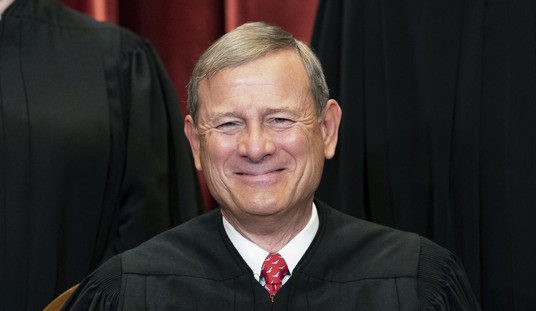Via Mediaite, profound righteousness from a guy who’s been zealous in prosecuting lower-level bigmouths but somehow hasn’t cracked down on the one two three four five major leaks in the past year that conveniently burnished his campaign image as an ass-kicking, Osama-killing, Iran-hacking James Bond of a C-in-C. In fact, he’s so offended that he’s not even going to entertain the idea of an independent prosecutor to find out where these curiously politically helpful stories keep coming from.
“No,” White House Press Secretary Jay Carney said when asked if Obama would yield to congressional requests that an “independent counsel” investigate a recent series of intelligence leaks to the media. “I refer you to agencies that are tasked with investigating these kinds of matter. And, again, this is something that the President insists that his administration take all appropriate and necessary steps to prevent leaks of classified information or sensitive information that could risk our counterterrorism operations.”
Carney also couldn’t agree to a congressional investigation. “I know there was a press conference today and I just don’t have enough information about it,” he told reporters. “But this President is fully committed to preventing leaks of classified information, as well as sensitive information that could jeopardize our counterterrorism efforts.”
Here’s how I think they’re doing this. They don’t want a leak to originate from the inner circle because it’d be too politically dangerous to them if that was found out. So instead they get some political appointee further down the totem pole to leak the basics of the story to a reporter and maybe float the names of a few midlevel advisors who might be willing to talk about it. The reporter then dials up those advisors and says “the cat’s out of the bag, here’s what I know, you might as well help me get this right,” and then the advisors fill in some of the blanks. Then, when the story’s coming together, the reporter takes it to the White House and says “we’re running with this, would you care to comment?” At that point the inner circle has the best of both worlds: Plausible deniability that the leak started with them plus a good excuse for why they should now go ahead and talk to the reporter about it (“we wanted to make sure their account didn’t contain any damaging errors”). For example, remember that big NYT scoop on Obama’s terrorist “kill list”? The Times claimed to have spoken to three dozen current or former advisors about Obama’s role in the process. Hard for me to believe that all of them were eager to talk, but between quiet encouragement from the White House and/or the “here’s what I already know” rap from the reporter, they probably ended up feeling obliged.
Here’s a bit from the Times’s Stuxnet expose. How far inside the inner circle are we here? Far enough to be a fly on the wall in the Situation Room:
At a tense meeting in the White House Situation Room within days of the worm’s “escape,” Mr. Obama, Vice President Joseph R. Biden Jr. and the director of the Central Intelligence Agency at the time, Leon E. Panetta, considered whether America’s most ambitious attempt to slow the progress of Iran’s nuclear efforts had been fatally compromised.
“Should we shut this thing down?” Mr. Obama asked, according to members of the president’s national security team who were in the room…
“From his first days in office, he was deep into every step in slowing the Iranian program — the diplomacy, the sanctions, every major decision,” a senior administration official said. “And it’s safe to say that whatever other activity might have been under way was no exception to that rule.”
Dean Baquet, the NYT’s managing editor, told Politico, “I can’t believe anybody who says these are leaks. Read those stories. They are so clearly the product of tons and tons of reporting.” What’s the difference? Of course there was reporting involved; some of that reporting involved national security honchos blabbing about what was said at Obama’s briefings. Is a leak not a leak if it’s printed alongside other independently corroborated facts? Besides, the charge here isn’t that leakers fed every detail of these stories to the media, it’s that they nudged them by tipping them to the basic narrative that the administration wanted to push — “did you know that President Bad-ass is personally delivering the thumbs down on jihadis?” — and then let them handle things from there.
This is revealing too, but not surprising:
“Our job is to report issues in the public interest, and this piece certainly meets that standard,” Dean Baquet, the Times managing editor, said in a statement to POLITICO. “As always with sensitive stories, we described the piece to the government before publication. No one suggested we not publish. There was a request to omit some highly technical details. We complied with the request after concluding it was not a significant part of the piece.”
I’ll bet they didn’t. And in case you’re tempted to conclude that it’s not O’s political team that’s pushing these leaks out there but rather career intel types who are simply seeking glory in the pages of the newspaper for their more impressive exploits, here’s what national-security reporter Marc Ambinder has to say: “Reality is that virtually all ‘leaks’ of this sort come from political appointees. 99.9 percent of govies w TS clearances never say a word.” Makes you wonder who those “members of Obama’s national security team” were who blabbed. Was it some upper-tier CIA apparatchik who happened to be in the room to assist with the briefing? Or was it, say, John Brennan or Tom Donilon, whose positions as national security top dogs depend on O being reelected?
Anyway, he’s offended.








Join the conversation as a VIP Member